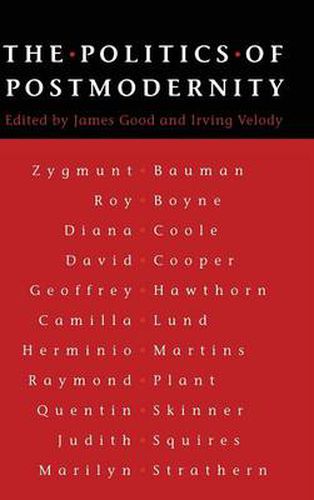Readings Newsletter
Become a Readings Member to make your shopping experience even easier.
Sign in or sign up for free!
You’re not far away from qualifying for FREE standard shipping within Australia
You’ve qualified for FREE standard shipping within Australia
The cart is loading…






In his study Modernity and the Holocaust, Zygmunt Bauman contrasts the hopes and expectations of the modernising world of the nineteenth century with the real outcomes of the twentieth century, where the very conditions of modernity have led to the mass destruction of humanity and of those early hopes for the betterment of humankind. This volume explores the possibilities left to those once modernising societies, not only in terms of the worlds they have constructed but also in discerning the novel conditions which the closure of modernity entails. That closure, in part the completion of industrialisation and the social order that went with it, and in part the dislocation of the kinds of social knowledge used to understand it, has raised profound and disturbing questions about the character of this brave new world and the new ways in which its governance and the goal of the good society can be understood. This volume explores some of the current vicissitudes of modernity, especially in relation to the crises of the political, and the political consequences of new technologies.
$9.00 standard shipping within Australia
FREE standard shipping within Australia for orders over $100.00
Express & International shipping calculated at checkout
In his study Modernity and the Holocaust, Zygmunt Bauman contrasts the hopes and expectations of the modernising world of the nineteenth century with the real outcomes of the twentieth century, where the very conditions of modernity have led to the mass destruction of humanity and of those early hopes for the betterment of humankind. This volume explores the possibilities left to those once modernising societies, not only in terms of the worlds they have constructed but also in discerning the novel conditions which the closure of modernity entails. That closure, in part the completion of industrialisation and the social order that went with it, and in part the dislocation of the kinds of social knowledge used to understand it, has raised profound and disturbing questions about the character of this brave new world and the new ways in which its governance and the goal of the good society can be understood. This volume explores some of the current vicissitudes of modernity, especially in relation to the crises of the political, and the political consequences of new technologies.